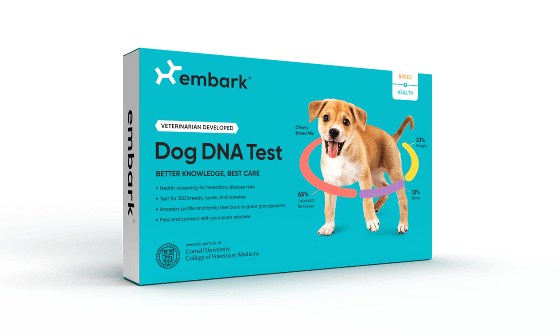Adding a puppy to your family is one of the most important decisions you’ll ever make. You’ll want confidence in the breeder that they have put the health and welfare of the puppy first. When that 8-week-old jumble of joy arrives at your new home, how will you know if you have done your homework to find a breeder you trust? Research to find responsible breeders can take place just about anywhere. Check websites, breed clubs, trainers, or Facebook groups, even word of mouth from your veterinarian, friends, or family can help locate a breeder. But once that initial contact is made, what are the best questions to ask, and what’s the best way to know you are getting a healthy puppy?
A Passion for Puppies
Responsible breeders are passionate about raising happy, healthy puppies. While you want to know about the breeder’s experience, don’t be surprised if they ask you to fill out a questionnaire about your previous dog-owning experience, too, especially if you haven’t owned a certain breed of dog before. You’ll want a breeder who screens you as much as you screen them. Here are some questions to ask of the breeder to gauge their experience:
- How long have you been breeding dogs, or a certain breed?
- Do you show your dogs, or compete in agility, obedience, or participate in other dog sports?
- Do you have references from other breeders, your veterinarian, or previous puppy buyers?
- Do you have a contract I could review, and will you take the puppy back if I am no longer able to care for it, no matter the reason?
Visit the Breeder
If you are within driving distance of the breeder’s home, ask if you can come for a visit. A prospective buyer needs to feel they trust the breeder and are comfortable with the surroundings where their puppy will be born and raised. During the visit make note of cleanliness, temperament of the dogs at the home or kennel, and safety features. If the breeder is willing, and it’s understandable in this age of the pandemic it might not be possible, maybe an online meeting can be arranged. Before you visit be sure to ask the following:
- Can I visit the mother of the puppies, and the father if on the premises?
- Can I visit the area where the puppy’s will be raised?
- Can I visit the puppies when they are old enough for visitors, but before they are ready to go to their new homes.
- What safety precautions do you require before I come to visit, especially if the puppies are unvaccinated before my visit?
Health Screenings of Parents
The health of any puppy starts with the parents. There are a variety of breed-specific health screenings, like hip x-rays with OFA, heart, ears, eyes, and more, and genetic tests that breeders should conduct on the parents of a potential litter.
- What health issues are common in your breed?
- What breed-specific health tests do you perform on the parents?
- Do you provide a copy of the results, and the parent’s results certificates from the health registries?
- Do you DNA test the parents to determine genetic health, and if so, will you share the results?
Genetic Health Results
A DNA Health Summary is just one of the reports among the breeder tools offered by Embark to help breeders share genetic health information with prospective puppy buyers. If a breeder has tested her litter of puppies with Embark, they should be able to provide you with a DNA Health Summary. This summary highlights if your potential puppy is at risk of developing any breed-specific genetic health conditions.
- Do you DNA test the whole litter before they go to their new homes?
- Will you share the puppy’s DNA test results with me?
- Is there any online content that can help educate me on the science of DNA?
- Can you explain how the puppy’s DNA test results can be the foundation for their standard of health care for the puppy’s life?
New Puppy Homes
Every breeder should provide important information about the puppy to a new puppy buyer. Ask the breeder what they offer. Many times they will have the puppy visit their vet, and also require the new owner take the puppy to their vet within 72 hours of arrival for proof of health at the time of transfer. Breeders should provide information which includes vet visits, worming schedule, vaccinations, and a feeding schedule, at a minimum.
- What is outlined in your contract that provides proof that you have bred a healthy puppy?
- Do you provide a detailed medical history?
- Do you provide a sample of the puppy’s current food to aid in the transition to his new diet in his new home?
- Are you available for questions or advice on my new puppy after I take her home?
The most important metric is do you feel comfortable with the breeder. Do you trust the breeder has followed best practices when it comes to health screenings and DNA testing for both parents and the puppies. Learning more about the science behind DNA will help you find the right breeder who embraces DNA testing as the standard of care for their dogs.










